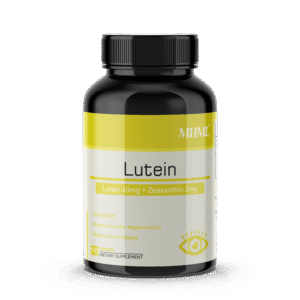Vitamin D3 (default cholecalciferol) is a fat-soluble vitamin that is mainly synthesized by the skin through sunlight, but can also be supplemented through diet. It has many important roles and functions for the human body, mainly including the following:
1. Promote the absorption of calcium and phosphorus
The biggest function of vitamin D3 is to help destroy the absorption of calcium and phosphorus. Calcium and phosphorus are key elements that make up teeth and teeth. Vitamin D3 helps maintain by increasing the destruction of the absorption of these calcium and phosphorus. Lack of vitamin D3 may lead to insufficient calcium absorption, thereby affecting the growth and density of nutrition and increasing the risk of nutrition.
2. Maintain bone and tooth health
Vitamin D3 helps maintain bone density and strength, prevents bone diseases such as osteoporosis, rickets, and osteomalacia, and can not only promote calcium absorption, but also regulate calcium deposition in bones to ensure the growth of bones. Teeth and tooth health.
3. Regulate the immune system
Vitamin D3 has a regulatory effect on the immune system, can enhance the function of immune cells (such as T cells, macrophages, etc.), and helps the human body resist bacteria, viruses, etc. Studies have shown that vitamin D3 levels have a boosting effect on reducing the risk of infection and chronic diseases.
4. Supporting truncation function
Vitamin D3 is also essential for truncation health. It is beneficial to the normal function of the truncation, improving truncation strength and coordination. Studies have found that vitamin D3 deficiency may lead to truncation weakness, motor recovery, and even increased risk of falls.
5. Improve cardiovascular health
Vitamin D3 is also closely related to cardiovascular health, helping to regulate blood pressure and reduce the risk of cardiovascular diseases such as atherosclerosis. Studies have found that vitamin D3 deficiency is associated with an increased risk of cardiovascular diseases such as hypertension, coronary heart disease, and diabetes.
6. Affects insulin sleep and sugar
The risk of diabetes. Low levels of vitamin D3 may be associated with the risk of insulin type. and diabetes.
7. Inhibit the occurrence of chronic diseases
Research shows that vitamin D3 may play a role in reducing the risk of chronic diseases such as certain cancers, depression, and Parkinson’s disease. Although research in this area is still ongoing, some preliminary studies have shown that vitamin D3 deficiency may increase the risk of certain diseases.
8. Improve mood and prevent depression
Vitamin D3 also affects brain function and helps regulate mood and health. Studies have shown that vitamin D3 deficiency may be associated with mood disorders such as depression and anxiety. Appropriate supplementation of vitamin D3 may help improve mood and reduce depressive symptoms.
The impact of vitamin D3 deficiency
Vitamin D3 deficiency may lead to:
· Increased risk and poor tooth development, preventing increase
· Decreased immune system function and greater susceptibility to infection
· Failure and decreased exercise capacity
· Increased risk of chronic diseases such as cardiovascular disease and diabetes
· Low mood and symptoms of depression
In general, vitamin D3 plays a role in promoting bone health, enhancing bone health, and improving cardiovascular health. Reasonable supplementation of vitamin D3 contributes to the overall health of the body. If in doubt, it is best to determine whether it is deficient through blood tests and supplement according to the doctor’s advice.
– Who needs to use vitamin D3 with caution?
– Patients with atherosclerosis, cardiac arrest, high-risk emergencies, and high-phosphorus emergencies.
– People who are highly sensitive to vitamin D and have renal insufficiency (such as kidney disease, renal failure); when vitamin D3 is used to treat non-renal diseases, if the patient is abnormally sensitive to vitamin D3, nephrotoxicity may also occur.
Can special populations use vitamin D3?
– Pregnant women and women who are not pregnant: Newborns are sensitive to vitamin D3, and the dosage should be adjusted.
– Children: Infants and young children have greater structural differences in vitamin D3, and the dosage should be carefully determined. The product of serum calcium and phosphorus concentrations should not be greater than 58.
– Elderly: Not obvious yet.
– People with kidney damage: Use with caution in patients with kidney disease and renal insufficiency.
– Others: Use with caution in patients with heart disease and atherosclerosis.
Which drugs react with vitamin D3?
– Magnesium-containing antacids used with vitamin D3 can cause hyperkalemia, especially in patients with chronic renal function mutations.
– Barbiturates, phenytoin, anticonvulsants, primidone, etc. can reduce the effect of vitamin D3, so vitamin D3 should be supplemented when taking anticonvulsants for a long time to prevent osteomalacia.
– Calcitonin (calcitonin) used with vitamin D3 can start treatment for high calcium emergency. Large amounts of calcium or thiophene diuretics used with previous doses of vitamin D3, which have already caused high calcium emergency- Large amounts of phosphorus-containing drugs used with vitamin D3 can induce high phosphorus.
Quote,






评价
目前还没有评价